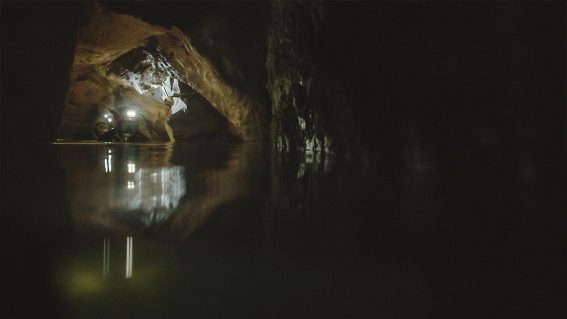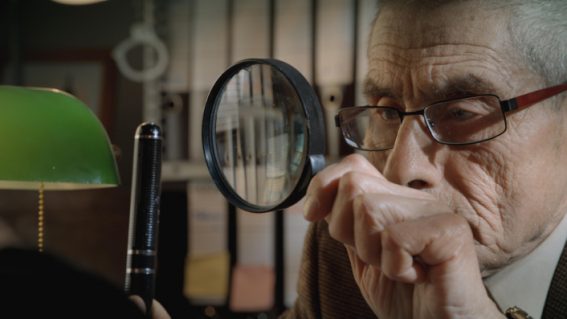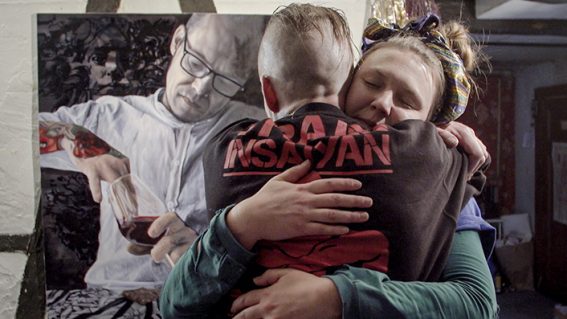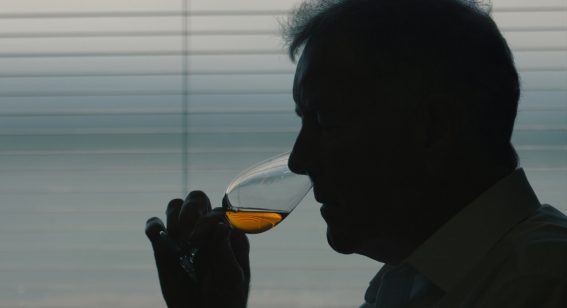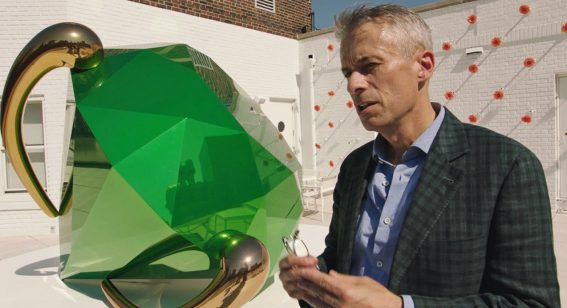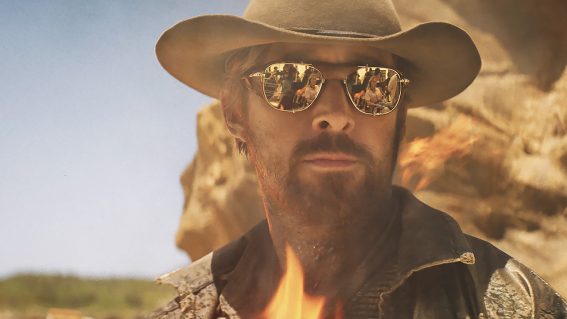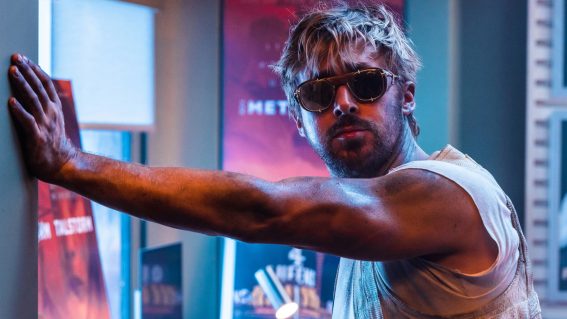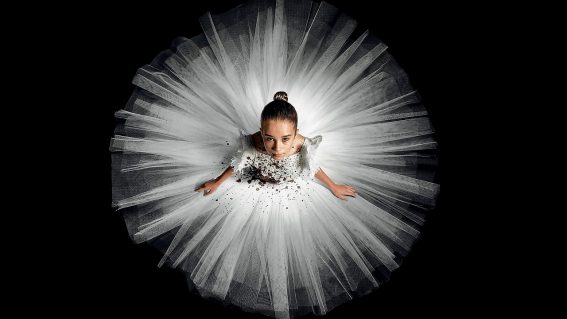In a year full of cinema spectacle, Fire of Love is a standout
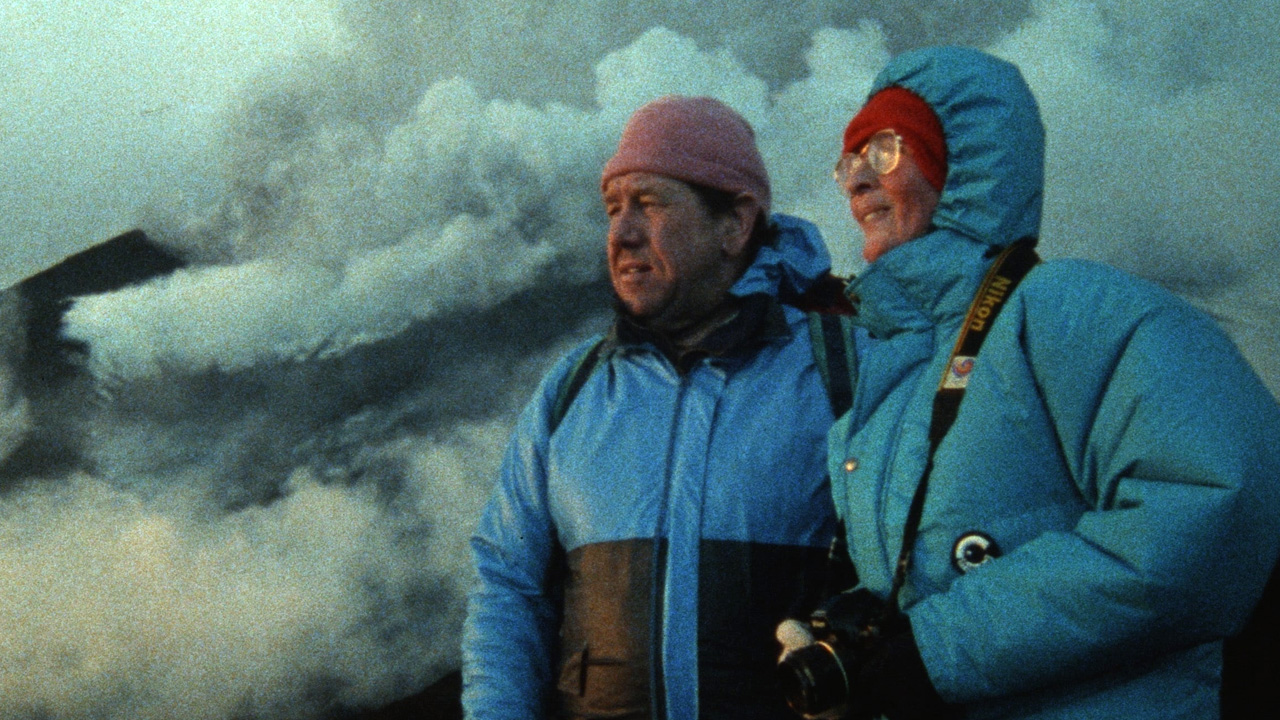
Fire of Love tells the true story of Katia and Maurice Krafft, a couple whose groundbreaking work studying volcanoes is what eventually sealed their fates. With spectacle proving a potent theme in 2022 cinema, this documentary expands upon the idea further, writes Liam Maguren.
When it comes to spectacle, some of this year’s cinema releases have given us a lot to mull on. From the eye-watering sensation of Top Gun: Maverick to the unidentified flying essay in Jordan Peele’s Nope, 2022’s has shown us the full power of visual awe—the former using spectacle to save movie theatres, the latter demonstrating spectacle as an all-consuming force of nature. By telling one of the year’s most compelling love stories, director Sara Dosa’s Fire of Love expands upon the idea of spectacle by showing it as an igniter of passion.
Katia and Maurice Krafft, briefly highlighted in Werner Herzog’s Into the Inferno, were a scientist power couple who shared an unparalleled desire to study volcanoes up-close and personal. We’re talking mere metres away from spewing rivers of lava, wearing homemade “looks good enough to me” hazard suits, all in the name of science. To our great delight, they filmed these insane endeavours.
Herzog’s film only showed the tip of the erupting volcano of footage the Kraffts captured over the years. With access to the archives housed in Image’Est, Dosa and her team showcase a wealth of footage, the Kraffts’ jaw-to-the-floor exploits are unlike anything you’ve seen or will ever see again. Some of the more obscure footage the Kraffts shot will forever be unexplained, a necessary grain of salt you have to take with this story, but most of their ventures, like Maurice’s casual canoe through an acid lake, are gasp-worthy and speak directly to who they were—as scientists and as people.
The spectacle alone rewards those who catch Fire of Love on the big screen, though the film’s riches extend beyond those pleasures. Guided by filmmaker-actor Miranda July’s softly-spoken narration, Dosa and her fellow writers tell the Kraffts’ unique story (as much as history will let them) by balancing available elements like Maurice’s various TV appearances with Katia’s written words. With no talking heads and only a smattering of recreated footage, the film’s crafty use of archival material creates an experience seemingly descended from the subjects themselves, despite them no longer being with us.
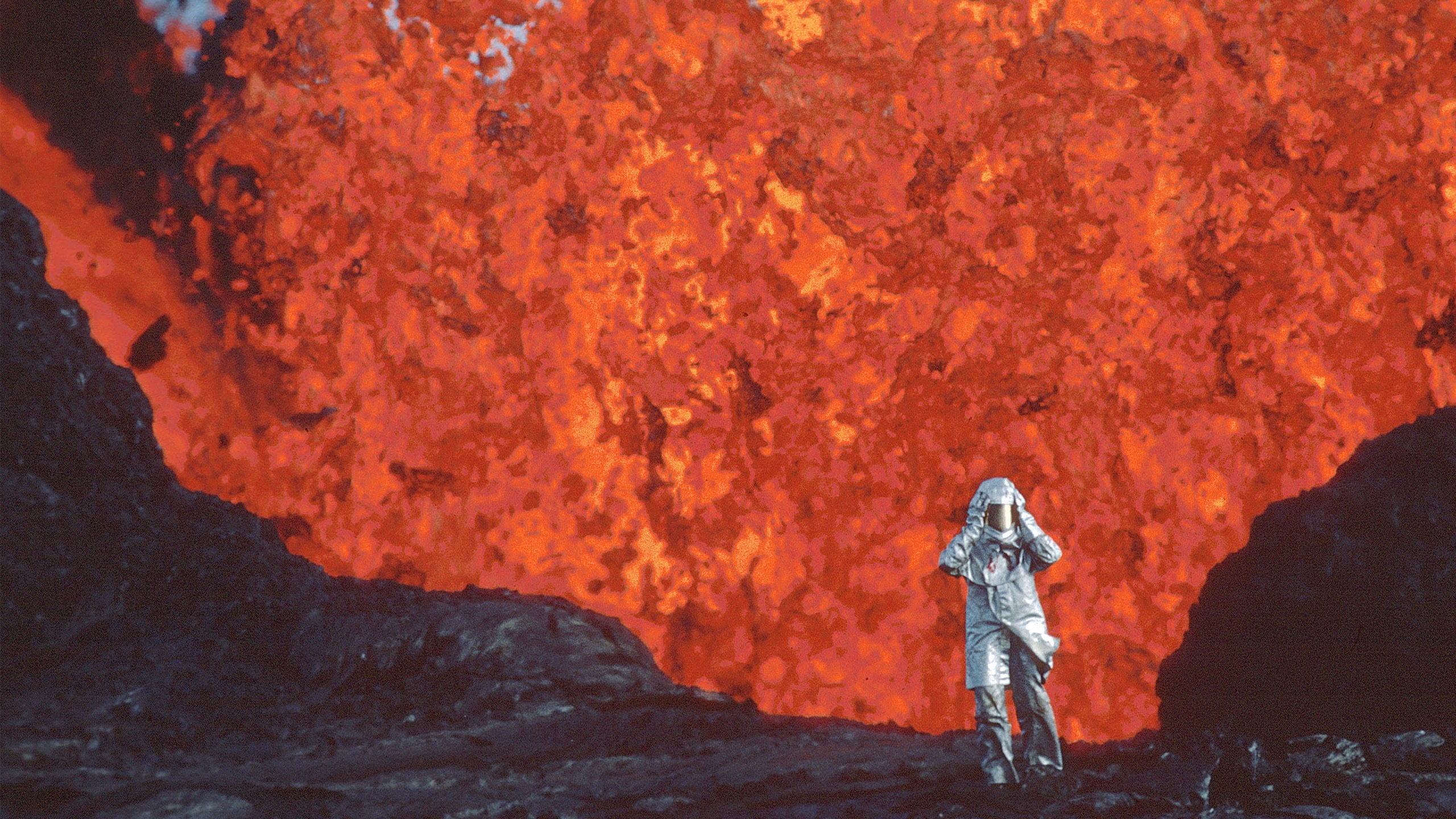
Not wanting to reveal their deaths as a cheap third-act twist, Fire of Love acknowledges early on how the Kraffts died amid an unforeseen eruption. In this manner, their demise comes across as an inevitability, and the Kraffts had an eerie amount of self-awareness about their fate leading up to the event. Whether their activities count as an act of passion or recklessness will be left for you to judge—a standout example of how Dosa’s direction delivers earnest and thought-provoking results.
The Kraffts’ passion cannot be denied, though. Their relationship with volcanoes has been compared to a love triangle, though it’d be more accurate (and less classy) to call it a ménage à trois of sorts, their vigour for volcanoes coming across more as a cooperative union than a competitive one. It’s hard to picture their marriage without exploding mountains, and by showcasing this unique romance without gushy romanticism, Fire of Love proves that a burning desire shared with another can be an amazing spectacle in its own right.





